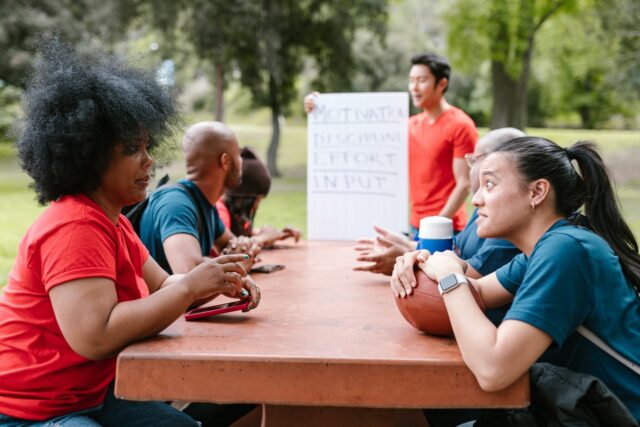Having conflict resolution skills in the workplace can be a valuable tool, not only for the success of the company but for your own professional development. Not everyone can handle stepping in when interpersonal tension arises on the clock, which means learning and applying these skills can get you recognized for key leadership roles. If you’re wondering where you might learn how to resolve coworker conflict more effectively, we’ve got you covered.
How to Improve Conflict Resolution Skills in the Workplace
Managing conflict in a professional setting comes with a unique set of challenges and not everyone is up for the task. In order to effectively address disputes that arise between team members, employees, employers, and upper management, a particular set of skills must be applied. So if you’re looking to pave your path as a leader in your organization, consider improving your conflict resolution skills in the workplace in one of the following places:
Business School
Training is essential when it comes to managing conflict in the workplace. Business school may be a helpful resource in addressing the human component of professional success, especially if your focus is on management. But if you’re struggling to get that insight from your core business classes, consider taking a supplementary psychology course as learning strategies to avoid conflict goes beyond the regular functions of a business and into what makes humans tick. And more importantly, what helps them regulate.
Workplace Mentor
Having a mentor at work can be helpful in so many ways, including addressing your own professional development. Included in your professional development could be learning conflict resolution skills in the workplace from someone who’s had direct experience in the industry of your career. Seek out someone experienced who has a work style you admire and a communication style you can get in sync with. Working with a mentor can really bring your conflict management lessons to life.
Conflict Resolution Books
There are plenty of books and online resources that offer insight into how to deal with interpersonal conflict, and many of them focus specifically on conflicts that arise at work. If you take this route, you’re likely to walk away with a strong sense of what skills can be helpful in deescalating tense situations, but you might not learn the experiential skills needed to actually execute them. Remember, conflict stirs up emotions, and that can include the emotions of the person trying to resolve the issues. Learning conflict resolution strategies is one thing, but applying them might be something books fall short in teaching.
Hire a Professional
If you want support in learning and applying these important skills, why not call on a professional to come into the office and provide training? That way, you can also share your knowledge with others on the team. Hiring professionals who come to your office and provide training or conflict resolution consulting services can benefit you and the company in a few ways. By educating the whole team on conflict resolution strategies, you may decrease the likelihood that you would ever need to use these skills in the first place. By increasing communication, emotion regulation, and professional boundary-setting skills company-wide, vulnerabilities can be reduced and the speed at which conflicts are resolved can increase.
If you’re looking for a hands-on approach to learning conflict resolution skills in the workplace, consider reaching out to the pros. Contact Pollack Peacebuilding Systems to learn the most effective skills in managing conflict in a professional setting and schedule a collaborative training at the office for your staff.




